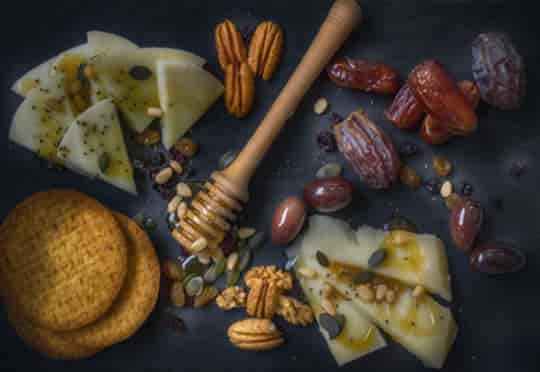A high calorie-dense food that is rich in nutrients promoting heart health.
Eating nuts has been shown to reduce cardiovascular disease incidence and death due to heart attacks and strokes.
Adding a handful of unsalted nuts to your everyday diet could indeed protect you from heart disease.
Pistachios, almonds, walnuts, hazelnuts and other nuts are rich source of antioxidants like polyphenols and phytosterols that improve heart health.
A study found that people who eat nuts two times or more weekly are 17 percent less likely to die from heart disease.
Dr Noushin Mohammadifard, the study’s lead author, said:
“Nuts are a good source of unsaturated fat and contain little saturated fat.
They also have protein, minerals, vitamins, fibre, phytosterols, and polyphenols which benefit heart health.
European and US studies have related nuts with cardiovascular protection but there is limited evidence from the Eastern Mediterranean Region.”
The research focuses on the link between eating nuts and heart diseases risk amongst people in Iran.
The research team enrolled 5,432 participants aged 35 and older who had no history of heart disease.
They used a validated food frequency questionnaire to measure the levels of nut intake, including almonds, hazelnuts, walnuts, pistachios, and seeds.
For 12 years, participants were interviewed to record and investigate cardiovascular issues including coronary heart disease, heart attacks, stroke, and death from cardiovascular disorders.
During this period, there were 594 coronary heart disease deaths, 179 cardiovascular deaths, and 157 strokes.
According to the European Society of Cardiology (ESC), a healthy diet should contain 30 grams of unsalted nuts daily.
This study proves that people who consume nuts twice or more per week would notably have a reduced risk of dying from cardiovascular disorders than those who eat nuts occasionally.
Dr Mohammadifard siad:
“Raw fresh nuts are the healthiest.
Nuts should be fresh because unsaturated fats can become oxidised in stale nuts, making them harmful.
You can tell if nuts are rancid by their paint-like smell and bitter or sour taste.”
The study was presented at the ESC Congress with the World Congress of Cardiology (Mohammadifard et al., 2019).

